
Muddy Waters (1913–1983) was an American blues artist who is considered a pioneer of the electric Chicago blues and a major influence on the development of blues and rock music. He popularized several early Delta blues songs, such as "Rollin' and Tumblin'", "Walkin' Blues", and "Baby, Please Don't Go", and recorded songs that went on to become blues standards, including "Hoochie Coochie Man", "Mannish Boy", and "Got My Mojo Working". During his recording career from 1941 to 1981, he recorded primarily for two record companies, Aristocrat/Chess and Blue Sky; they issued 62 singles and 13 studio albums.

Otis Spann was an American blues musician, whom many consider to be the leading postwar Chicago blues pianist.

James Henry Cotton was an American blues harmonica player, singer and songwriter, who performed and recorded with many fellow blues artists and with his own band. He also played drums early in his career.
James Burke "St. Louis Jimmy" Oden was an American blues singer and songwriter.

At Newport 1960 is a live album by Muddy Waters recorded during his performance at the Newport Jazz Festival on July 3, 1960. With his longtime backup band, Muddy Waters plays a mix of his older popular tunes and some newer compositions. Chess Records released the album in the United States on November 15, 1960.
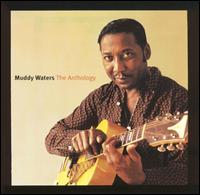
The Anthology: 1947–1972 is a double compilation album by Chicago blues singer and guitarist Muddy Waters. It contains many of his best-known songs, including his R&B single chart hits "I'm Your Hoochie Coochie Man", "Just Make Love to Me ", and "I'm Ready". Chess and MCA Records released the set on August 28, 2001.
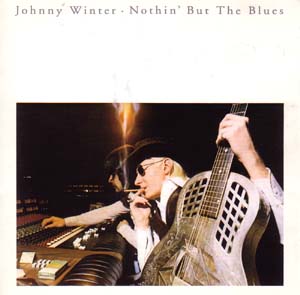
Nothin' but the Blues is a 1977 album by Johnny Winter. The album has the following dedication: "I'd like to dedicate this album to all the people who enjoy my kind of blues and especially to Muddy Waters for giving me the inspiration to do it and for giving the world a lifetime of great blues." - Johnny Winter.

Hard Again is a studio album by American blues singer Muddy Waters. Released on January 10, 1977, it was the first of his albums produced by Johnny Winter. Hard Again was Waters's first album on Blue Sky Records after leaving Chess Records and was well received by critics.

I Am the Blues is the sixth studio Chicago blues album released in 1970 by the well-known bluesman Willie Dixon. It is also the title of Dixon's autobiography, edited by Don Snowden.

Willie Lee "Big Eyes" Smith was an American electric blues vocalist, harmonica player, and drummer. He was best known for several stints with the Muddy Waters band beginning in the early 1960s.
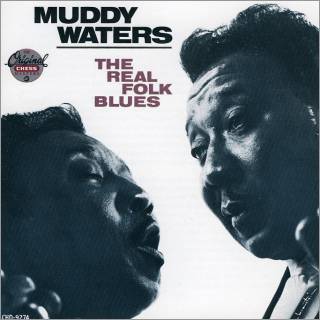
The Real Folk Blues is a 1965 compilation album of Muddy Waters recordings, released on the Chess record label in January 1965. The album was the first release of The Real Folk Blues series and has since been re-released in multiple formats. The album features some of Waters' first recordings.

Fathers and Sons is the seventh studio album by the American blues musician Muddy Waters, released as a double LP by Chess Records in August 1969.
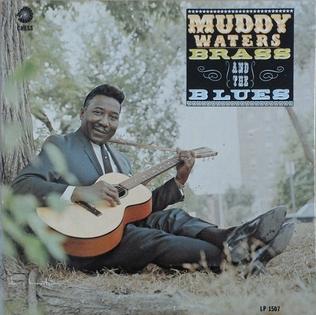
Muddy, Brass & the Blues, sometimes referred to as Brass and the Blues, is an album by the blues musician Muddy Waters, released by Chess Records in 1966.

Muddy Waters Sings "Big Bill" is the first studio album, but second overall album by blues musician Muddy Waters, featuring songs by Big Bill Broonzy, released by the Chess label in 1960.
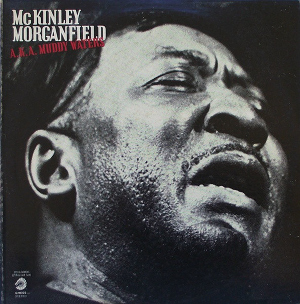
McKinley Morganfield A.K.A. Muddy Waters is a compilation album by blues musician Muddy Waters featuring tracks recorded between 1948 and 1953 released by the Chess label in 1971.
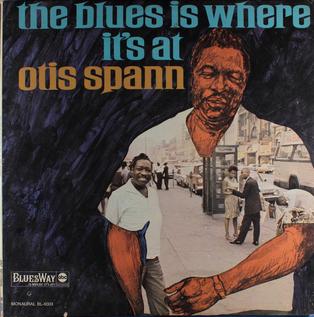
The Blues Is Where It's At is an album by blues pianist/vocalist Otis Spann recorded in 1966 and originally released by the BluesWay label.
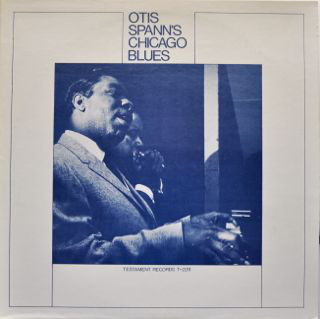
Otis Spann's Chicago Blues is an album by blues pianist and vocalist Otis Spann recorded in Chicago at two sessions in 1965 and released by the Testament label.

The Bottom of the Blues is an album by blues pianist/vocalist Otis Spann recorded in 1967 and originally released by the BluesWay label.

Cryin' Time is an album by blues pianist and vocalist Otis Spann recorded in Chicago in 1968 and released by Vanguard Records.

Chicago/The Blues/Today! is a series of three blues albums by various artists. It was recorded in late 1965 and released in 1966. It was remastered and released as a three-disc album in 1999.



















